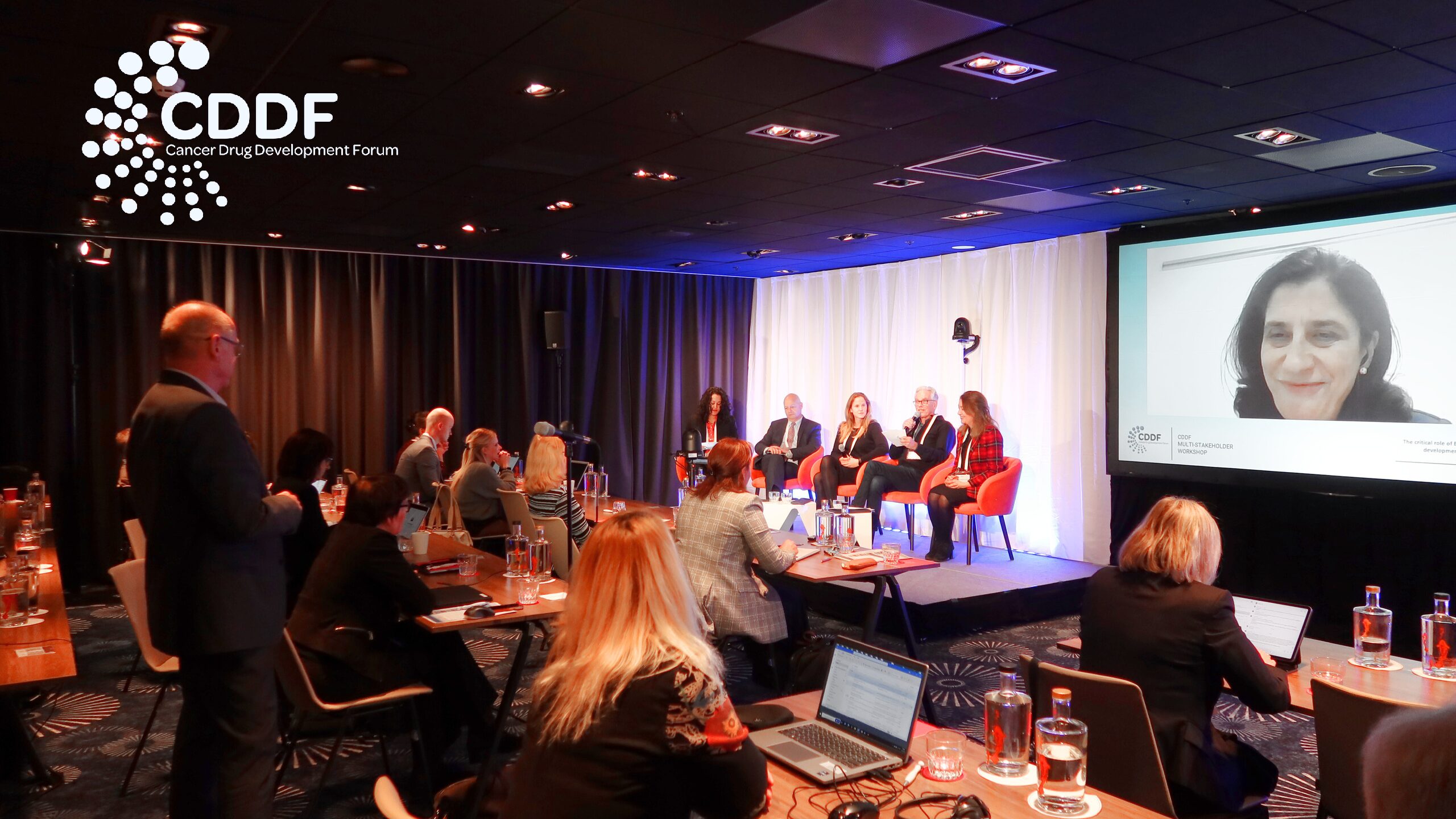Read the take-home messages from the CDDF multi-stakeholder workshop on The critical role of Biomarkers in delivering drug development-related precision oncology:
SESSION 1: SETTING THE SCENE OF BIOMARKERS
Key takeaways:
- Biomarkers are critical in the diagnosis of cancer, in defining prognosis and in prediction of response and potential toxicities to precision therapies
- Timely precision genomic testing should be embedded within health systems to provide equal access to targeted treatment option for all patients
- Biomarker driven research leads to faster, more effective and cost efficient drug development
- Patients must be at the center of biomarker driven precision oncology
Next steps:
- Promote patient education on importance of precision oncology and its impact on patient care
- Promote collaboration between academic, industry and regulatory agencies to generate the data to support implementation of biomarker-driven precision care
- Derive evidence to implement ctDNA approaches to enhance the cancer treatment pathway
SESSION 2: BIOMARKER BASED AUTHORISATION & REIMBURSEMENT
Key takeaways:
- More data is required to better inform the selection of clinically relevant cut-off points.
- Precision oncology currently accounts for more than a third of new FDA drug approvals but regulatory approval for CDx poses certain challenges
- HTA bodies should incorporate the test-treatment combination within cost-effectiveness analyses.
- In the Netherlands, a tripartite national committee, comprising health professionals, health insurance companies and patient advocates, helps selected appropriate testing and reimbursement.
- Increased transparency regarding testing, has the potential to diminish practice variation and enhance access.
SESSION 3: THE COST OF NOT USING BIOMARKERS
Key takeaways:
- Genomic testing rates are lower than anticipated in lung, colorectal and ovarian cancers, diseases for which there is clear data on the benefit of application of targeted therapy
- Multisided strategies are needed to deliver precision medicine including mechanisms to streamline testing delivery, access and reimbursement.
- Collaboration of patient advocacy, medical specialists, insurers, politicians and national health authority resulted in reimbursement of whole-genome sequencing for patients with cancer of unknown primary (CUP) in the Netherlands, and a network of CUP clinics to support testing.
- Increasing access to broad biomarker sequencing panels and repeat testing can help address spatial and temporal heterogeneity across tumors.
SESSION 4: IVDR
Key takeaways:
- It is important to consider the real world setting for Biomarker based treatment: Multiple tests can be used in clinical care: CE marked assays and in house tests. We need to ensure that IVDs are constantly further developed and that the quality of tests is high.
- From regulatory perspective the IVDR adds complexity to clinical trials and to approval of drugs with CDx. We need to reduce complexity and come up with simplification. E.g. introduce a harmonized approval procedure for performance studies
- In Europe the SmPC will describe the used CDx however the label will not refer to a specific approved test as in the US. This should allow broad access to testing in Europe. Clear labeling guidance and guidance related to the consultation procedure were presented.
- Notified bodies are deeply involved in discussions with the EMA through pre-submission meetings and the consultation procedure.
